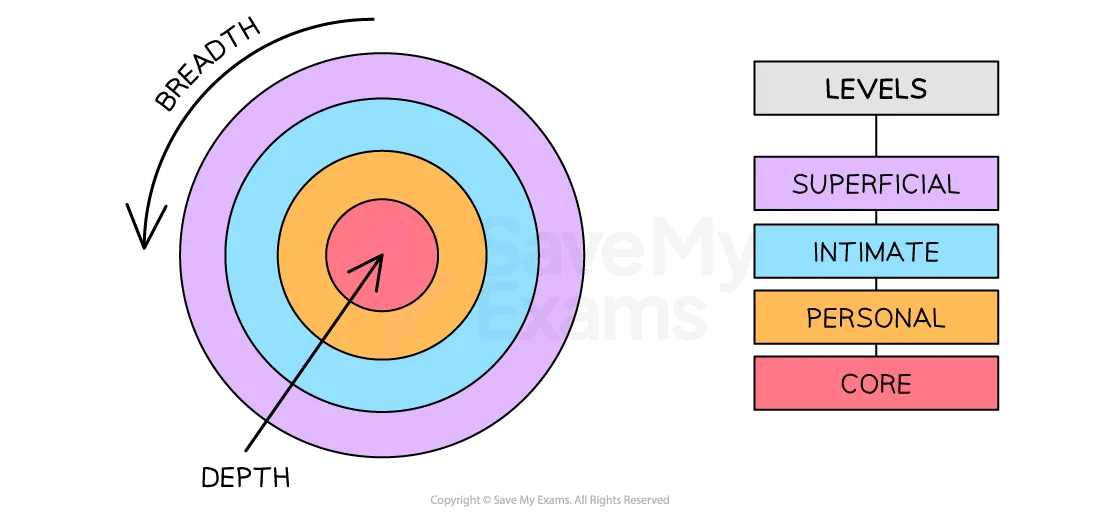What is self disclosure?
- Self-disclosure is the act of revealing personal information about the self to another person
- The nature of self-disclosure and how much is revealed will depend on a number of factors:
- The person to whom the details are disclosed e.g. a romantic partner
- The stage of the relationship e.g. in the first few weeks; after several months; after several years (even though self-disclosure is a factor in attraction it still continues as the relationship progresses)
- The person who is disclosing the information e.g. they may be a naturally confident, outgoing person or they may be naturally shy and reticent
- The nature of the details being disclosed e.g. these may be banal e.g. ‘I went to St Freud’s school’ or controversial e.g. ‘I have spent time in prison’
- The reasons behind the self-disclosure e.g. to cement a bond of trust between the partners perhaps or maybe to encourage self-disclosure from the other person (known as reciprocity)
- Self-disclosure is not a set and stable type of communication: it is likely to vary per individual depending on their age, their relationship status, their profession, their mood etc.

Are you an over-sharer or are you more discreet in your self-disclosure?


